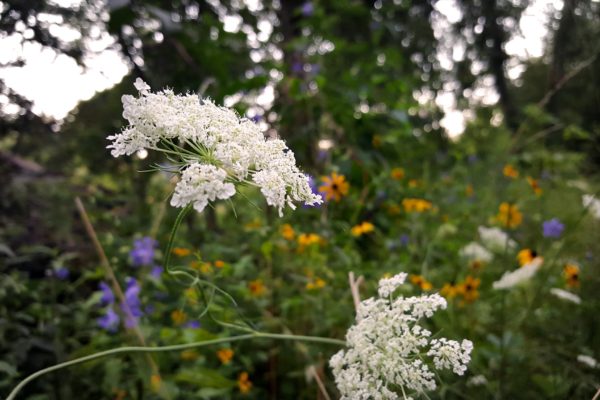
Sustainability Seekers Pollinator Garden
Buzz buzz buzz! New and exciting things are happening at PUCC. The Sustainability Seekers are branching out and are planting a native garden next to the kitchen on the east side of the building. Why natives? Our planet has lost much of our native habitat. Native plants provide nectar for pollinators including hummingbirds, native bees, butterflies, moths and bats. Many caterpillars have evolved to eat specific plants, like the monarch caterpillar which eats only milkweed. Our native birds, insects and animals can’t survive without our native plants.
A native garden is different from a conventional garden in several important ways. In a conventional garden you may put pesticides on your plants to keep them from being eaten. In a native garden it is the opposite. You want the plants to be eaten by caterpillars and insects! Did you know that baby birds need caterpillars, insects and spiders to survive? They don’t eat seed, they need the protein provided by these invertebrates. A single clutch of Carolina Chickadee chicks can eat more than 9,000 caterpillars in the weeks between hatching and taking flight.
It may seem as if nothing much is happening in the garden for the first year or two. It takes time to establish natives! Their root system grows very deep, as deep as fifteen feet or more. The first few years native plants put their energy into growing their root system. This allows them to survive drought and find the nutrients they need in the soil. Once established they need very little watering or fertilizer.
You may see our native garden start to take shape this month. We will be removing the sod and adding compost to the soil. Planting will start soon!
Be sure to watch this exciting addition to PUCC.
Post Date: May 18, 2023
